Are Humidifiers safe for birds? Creating a suitable habitat for our feathered friends often involves managing humidity, significantly impacting their comfort. It’s not unusual to ponder if employing a humidifier, a standard tool humans use to enhance moisture levels is also appropriate for our bird companions.
The question arises: Is it safe to use a humidifier for birds? Rest assured; the answer is affirmative. When operated properly, humidifiers pose no threat to your delightful avian pets. They may provide numerous advantages. However, it’s crucial to exercise caution when selecting a suitable humidifier for your pet birds.
What Is a Humidifier?
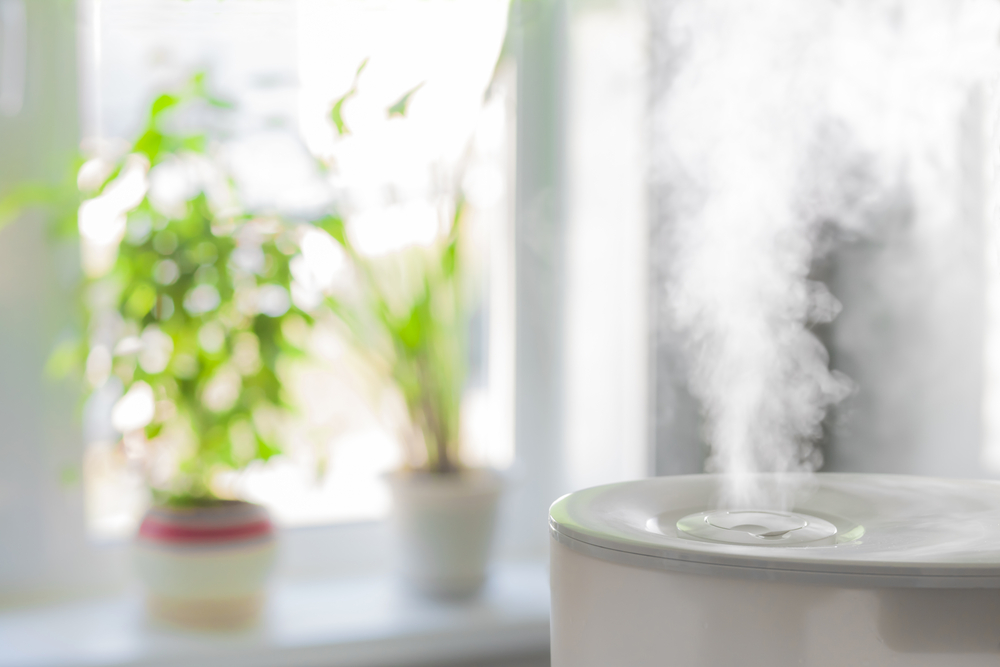
A humidifier is a device that increases the amount of moisture or humidity in a single room or an entire building. Residential humidifiers are commonly used to improve home comfort, especially in dry climates or during dry winters when indoor heating systems can significantly decrease indoor humidity.
Optimal Humidity Range for Avian Companions
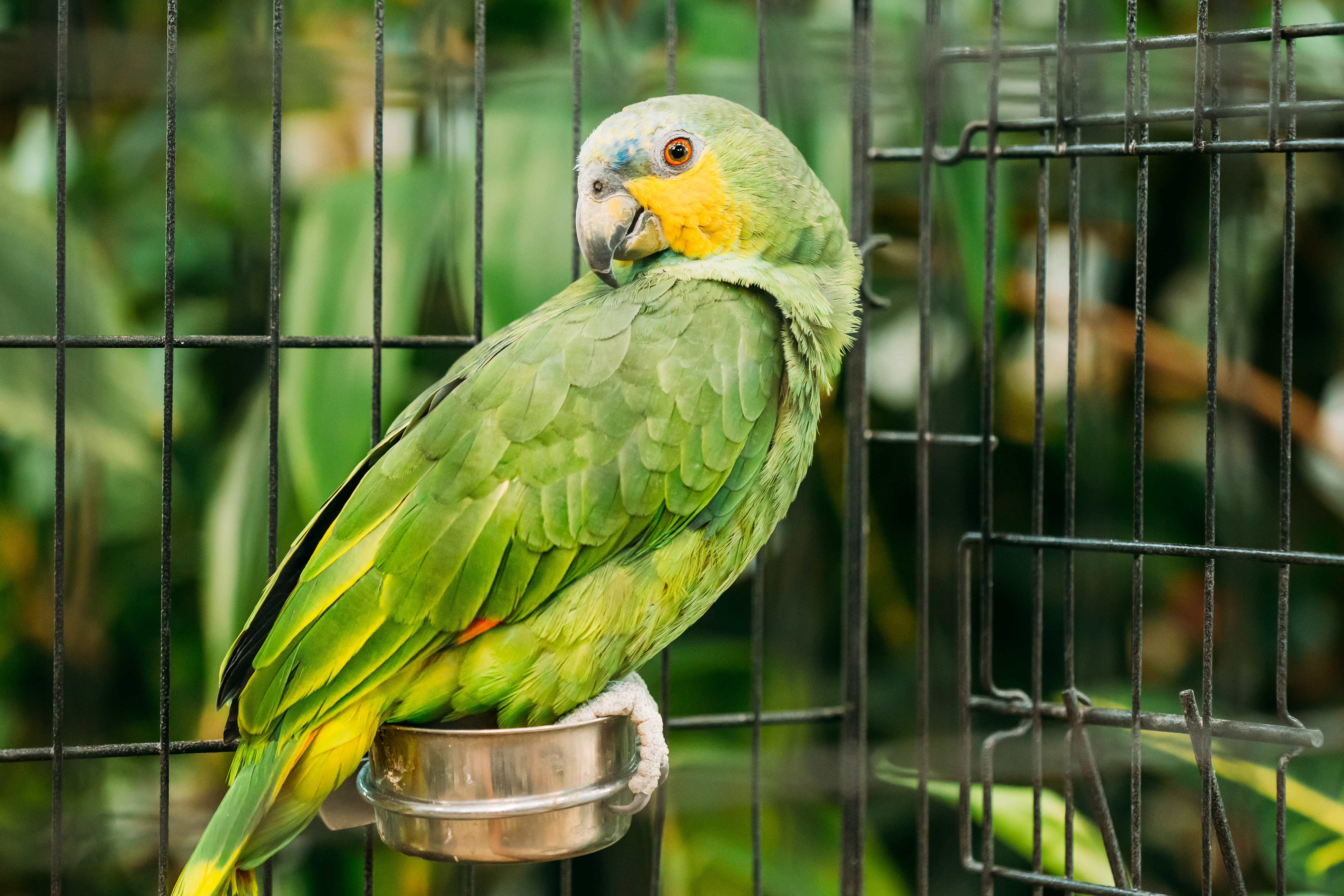
As mentioned, maintaining optimal humidity levels is crucial for exotic birds sharing our living spaces. While the perfect humidity level can differ between bird species, a general guideline suggests it should fall within the 40% to 60% range.
Excessive humidity should be avoided as it can foster the growth of mold spores, posing a potential health risk to your birds.
Conversely, an overly dry environment is also undesirable. During the winter months, for instance, the sharp decline in humidity can lead to discomfort in your pet bird, prompting feather-plucking behaviors. Dry air can also adversely impact lung function, increasing the susceptibility of your bird to infections.
Since many parrot species originate from humid tropical regions, they naturally lean towards a higher humidity environment.
Hence, striking a balance in the humidity levels in your home is key to ensuring the well-being of your avian companions.
Is a Humidifier Essential for Your Pet Bird’s Habitat?
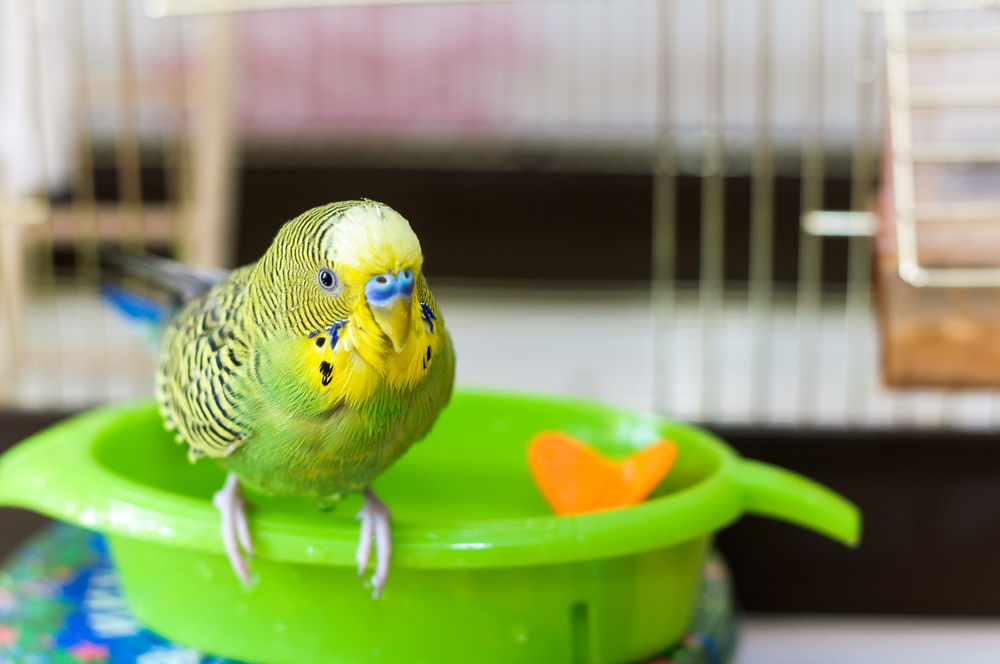
Since our pet birds cannot migrate at will, adjusting their environmental humidity falls on us. Various methods exist to manage this, but the most straightforward approach involves using a humidifier or a dehumidifier.
Should the prevailing atmosphere prove excessively dry for both you and your feathered companions, deploying a humidifier could significantly enhance comfort levels in no time.
Thus, in drier climates, birds, like humans, require a humidifier to maintain their health.
Additionally, knowing how to recognize signs of dehydration in your pet birds might be helpful. There are several methods to ascertain this.
You could closely examine the skin of your small cockatiels. The presence of cracks or scales could be indicative of dehydration.
Alternatively, keep an eye out for increased thirst in your bird. If observed, this could suggest a need for heightened humidity.
Ensuring Avian Safety: Are Humidifiers Suitable for Birds?
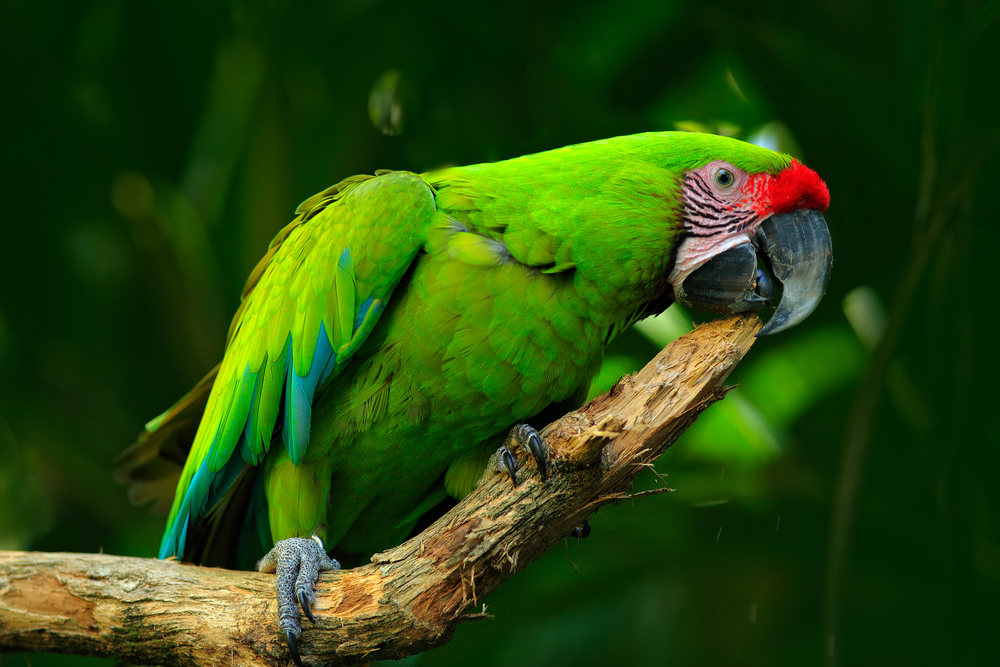
The use of a humidifier around birds is generally safe. While the mist generated by the device poses no threat to your birds, certain precautions are necessary for their safety.
It’s important to consistently clean the humidifier’s water tank to avert the proliferation of mold and germs. These microorganisms could be released into the air, leading to discomfort or infections in your budgies and parakeets.
Also, be sure to keep the humidifier at an appropriate distance from your bird. Placing it too close might result in a wet bird, which could induce illness.
If you opt for a warm mist humidifier, ensure the mist isn’t overly heated to scald your bird.
Lastly, avoid adding essential oils to the humidifier unless a veterinarian recommends it. These oil particles could potentially irritate the bird’s airways.
Selecting the Ideal Humidifier for Your Avian Companions: A Comprehensive Guide
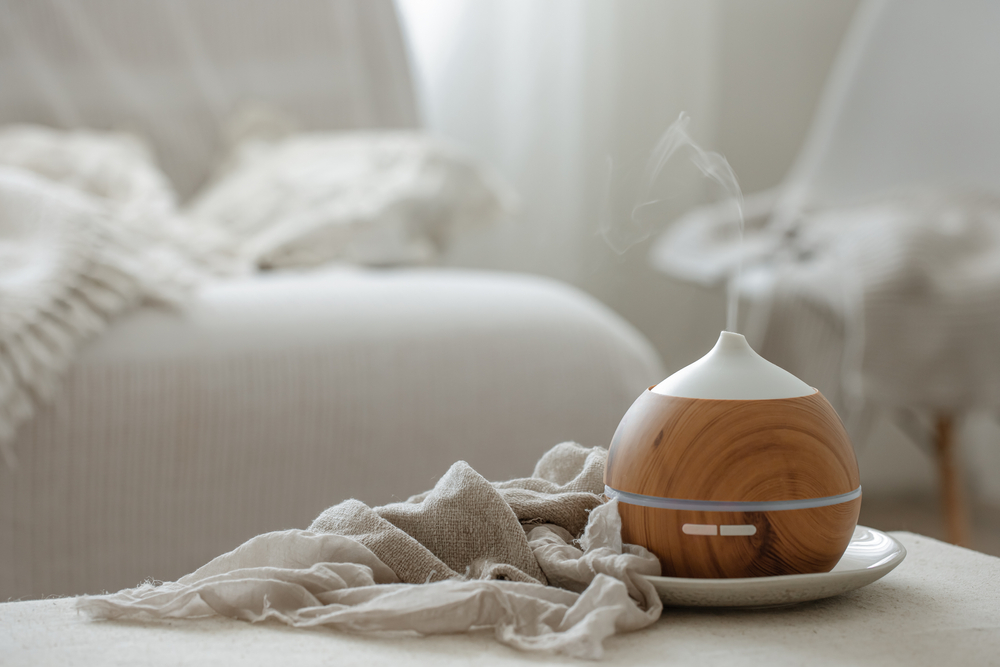
Selecting a humidifier requires careful consideration of numerous factors, much like when choosing one for ourselves, and it’s no different when it comes to our birds. For your feathered friend’s long-term safety and well-being, it’s worth investing some time to find an option that suits their needs.
Exploring Different Types of Humidifiers
Many individuals lean towards a cool-mist humidifier, believing that it reduces the risk of scalding accidents, and indeed, it does.
However, numerous veterinarians advocate for warm mist humidifiers due to their ability to neutralize potentially harmful mold spores in the water tank, a crucial safety consideration for birds. To mitigate any risk of burns, however, the humidifier should be positioned at a safe distance from the bird’s cage.
Opting for a cool-mist humidifier is still viable, provided it’s subject to regular and thorough cleaning.
Check Noise Levels
Most pet birds, including parrots, favor serene environments and are generally more sensitive than humans. Excessive noise can lead to heightened anxiety and stress, negatively impacting their well-being.
Fortunately, many of today’s humidifiers operate quietly or feature silent modes. Notably, ultrasonic humidifiers are acclaimed for their low noise output, primarily attributed to their design features.
Considering we often share living spaces with our avian companions, a quieter environment is also beneficial for us as it minimizes disturbances.
Review Humidifier Capacity
The frequency at which you’ll need to refill your humidifier depends on its capacity. If you plan to operate the humidifier for extended periods, a model with a larger water tank would be advisable.
For those of us who spend significant time away from home yet wish to maintain the humidifier running for our pets, a higher capacity humidifier can provide uninterrupted operation during our absence.
Maintenance and Cleaning
Whether you own a whole-house humidifier or a room-specific one, regular cleaning is necessary. Harmful microbes in the water tank can lead to illness for your parrot and yourself.
Since cleaning a humidifier can be somewhat burdensome, seeking a product designed for easy maintenance is advisable. Opt for a model featuring a readily removable water tank and ensure it is thoroughly and routinely cleaned.
Saftey
Generally, humidifiers pose no harm to birds when used correctly. Opting for a reputable brand can further minimize potential electrical issues.
Moreover, it’s prudent to position the humidifier safely from the bird’s cage, preventing the bird from directly inhaling the emitted vapor.
Housing Spaces
The size of the room housing your bird will dictate the type of humidifier required. You may need a more substantial humidifier with a greater coverage area for larger spaces. Conversely, a small, portable humidifier should suffice for more compact rooms.
Invest wisely in a unit providing adequate mist to meet your needs.
Consider Extra Features
Many humidifiers come with additional features like a built-in hygrometer to measure humidity levels, auto shut-off when the desired humidity level is reached or when the water tank is empty, or a timer function.
Other ways To Increase Humidity In a Bird Room
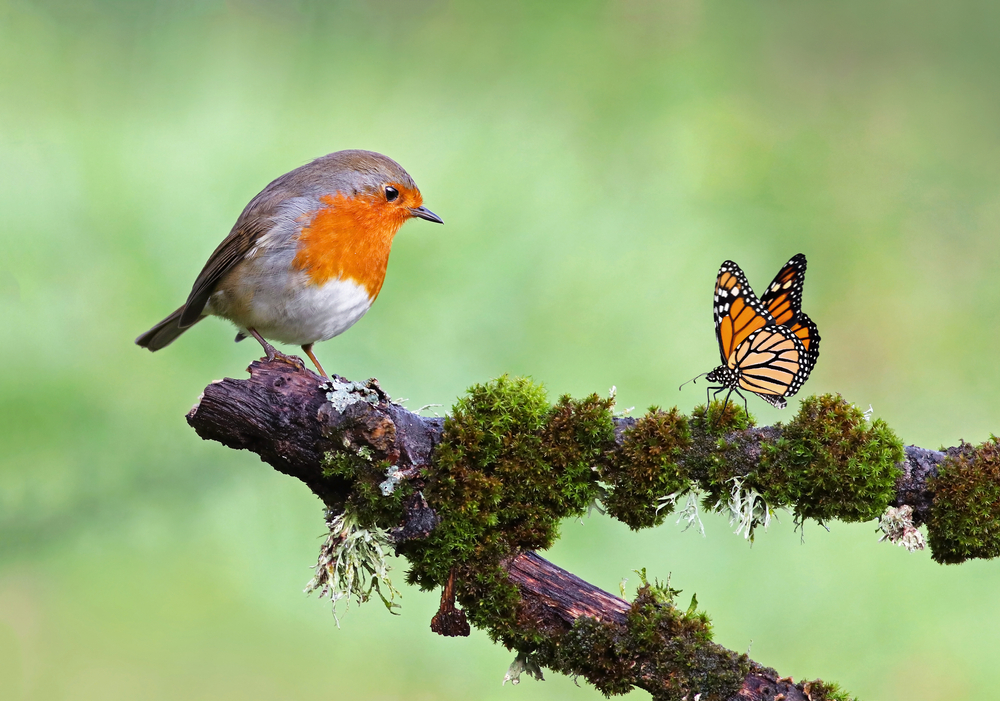
If concerns about your birds’ safety persist, there are alternative methods to boost room humidity levels.
One option is to place a water bowl near a window, allowing natural evaporation to humidify the space. Introducing more houseplants can also be effective as water gradually evaporates from their leaves and flowers, contributing to increased humidity.
Moreover, hanging damp clothing in a dry room can subtly enhance the ambient humidity.
Providing Extra Hydration
In addition to maintaining appropriate humidity levels, ensuring your bird has access to fresh water for drinking and bathing is crucial. Bathing helps birds keep their feathers in good condition and can also help to increase the humidity in their environment. In the wild, birds will often bathe in shallow water sources, so providing a shallow dish of water in their cage can be an effective way to allow your bird to bathe.
Some birds, mainly tropical species, may also enjoy mist baths. You can mist your bird gently with a spray bottle filled with warm water. Make sure the spray bottle has never contained any cleaning chemicals, and only mist your bird at times when it will have plenty of time to dry off before nightfall, as a wet bird can become chilled overnight.
Keeping an Eye on the Environment
Temperature is another important factor to consider when maintaining an optimal environment for your bird. Just as too little or too much humidity can be detrimental, so too can temperatures that are too hot or cold. Be sure to place your bird’s cage in a location that avoids drafts and direct sunlight and maintain a consistent temperature appropriate for your bird’s species.
Air quality is another essential aspect of your bird’s environment. Birds have susceptible respiratory systems and can be affected by smoke, chemical fumes, and dust. Avoid smoking in the same space as your bird, and be mindful of potential sources of fumes, such as cleaning products, candles, and cooking.
Regular Vet Visits
Lastly, regular check-ups with a qualified avian vet are essential for monitoring your bird’s health. Your vet can guide any environmental adjustments that may be needed and can spot early signs of health problems, including those that may be related to humidity levels. They can also advise on diet, exercise, and social interaction, which affect your bird’s overall well-being.
Considering all these factors, you can create a safe and comfortable environment for your pet bird. A humidifier can benefit your bird’s habitat with the correct care and attention. However, always consult an avian veterinarian before significantly changing your bird’s environment or care routine.
In summary, using a humidifier for birds can be safe and beneficial when used correctly. However, it’s crucial to remember that it’s just one piece of the puzzle to create a healthy and comfortable environment for your feathered friend. Regular veterinary care, a balanced diet, and an enriching and safe living space are all vital for keeping your bird healthy and happy.
Conclusion
As devoted bird owners, our pet birds’ safety is a top priority. In our quest to increase room humidity, we want to ensure the chosen humidifier poses no risks to their wellbeing.
Fortunately, birds can safely cohabit in spaces with a humidifier, given certain factors are considered when selecting one.
Given the importance of keeping the humidifier clean, prioritizing a model that is easy to maintain is critical. If concerns about airborne molds and mildew exist, a warm mist humidifier might be preferable.
Additionally, as parrots are not fond of noise-producing devices, verifying the humidifier’s quietness before purchasing is recommended.
For More Info: https://www.audubon.org/